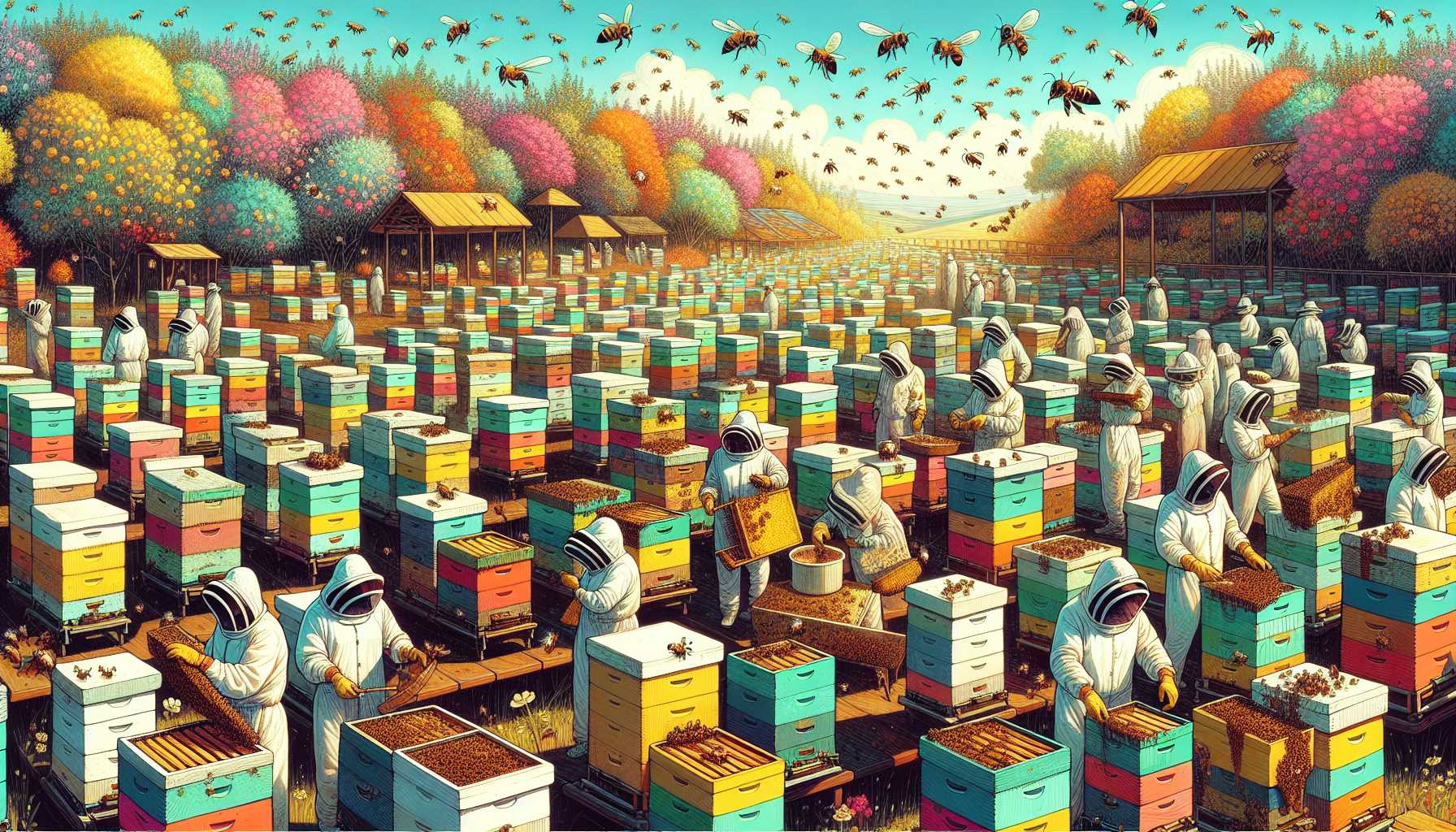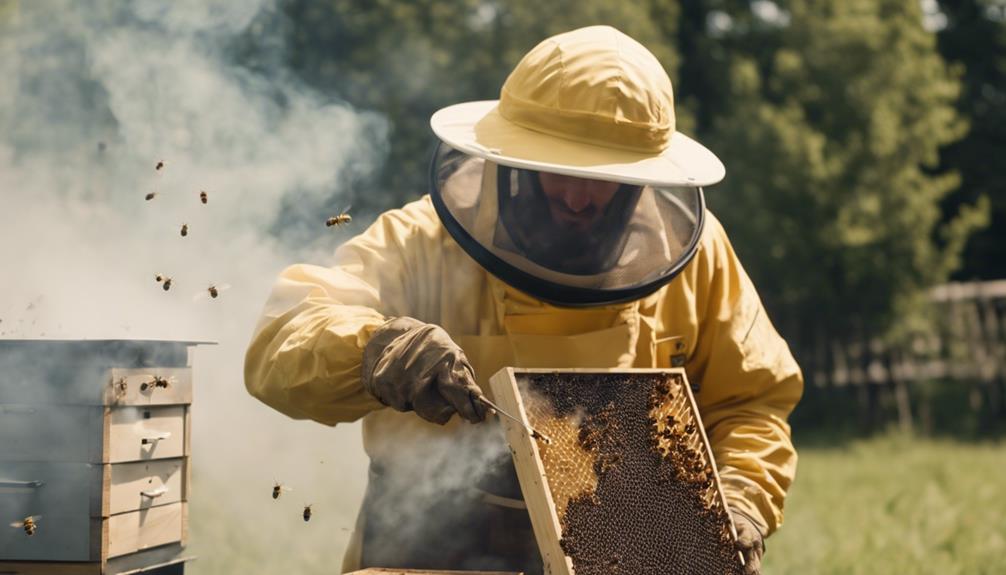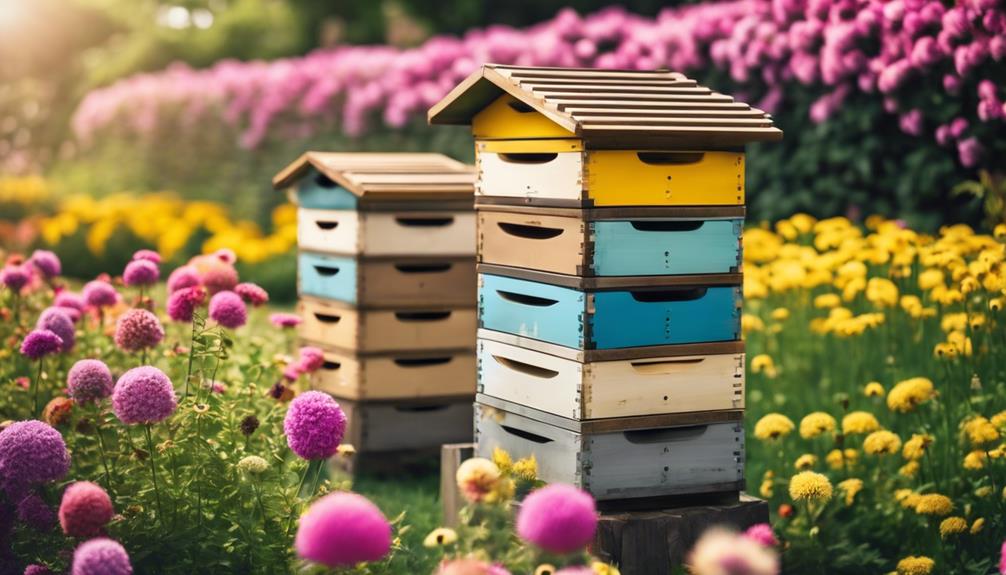Exploring the field of beekeeping opens up a world of fascinating career opportunities for those with a passion for apiary pursuits. From the traditional role of a beekeeper to more specialized positions like a honey sommelier, the industry offers a diverse range of roles that cater to various interests and skill sets.
Each of these ten buzzworthy beekeeping jobs presents a unique avenue for aspiring apiarists to contribute to the vital work of supporting bee populations and harnessing the benefits of their labor.
Key Takeaways
- Beekeepers play a crucial role in promoting sustainable beekeeping practices and advocating for bee well-being.
- Harvesting techniques impact honey quality, emphasizing the importance of sustainable practices and quality control.
- Pollination specialists are essential for enhancing crop productivity, conservation efforts, and agricultural sustainability.
- Entrepreneurship in bee products requires combining passion for bees with innovative business strategies for sustainable ventures.
Beekeeper
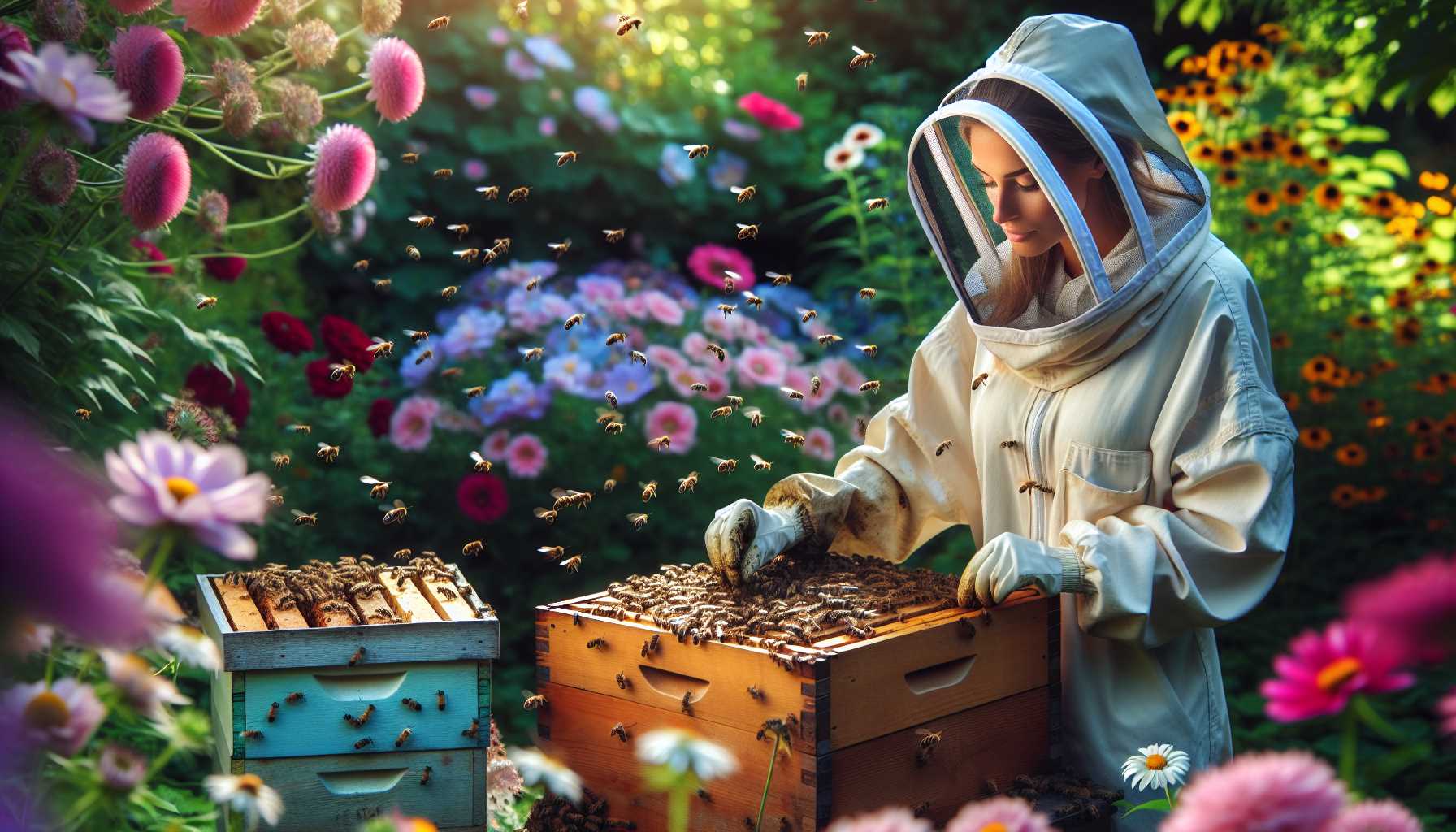
Beekeeping enthusiasts who dedicate themselves to the art and science of apiculture are known as beekeepers, individuals who play a crucial role in the preservation and cultivation of honeybee colonies. The role of a beekeeper extends far beyond just harvesting honey. They are at the forefront of promoting sustainable beekeeping practices, ensuring the health and vitality of bee populations.
One fascinating aspect of beekeeping is bee venom therapy, where beekeepers utilize bee stings for medicinal purposes. Bee venom is believed to have anti-inflammatory properties and is used in alternative medicine to treat various ailments. Additionally, beekeepers are actively involved in promoting beekeeping tourism, inviting visitors to experience the wonders of beekeeping firsthand.
In recent years, urban beekeeping has gained popularity, with beekeepers setting up hives in city environments to help pollinate urban gardens and green spaces. This trend not only supports local ecosystems but also raises awareness about the importance of bees in our urban landscapes. Beekeepers truly embody a passion for bees and a commitment to their well-being.
Honey Harvester
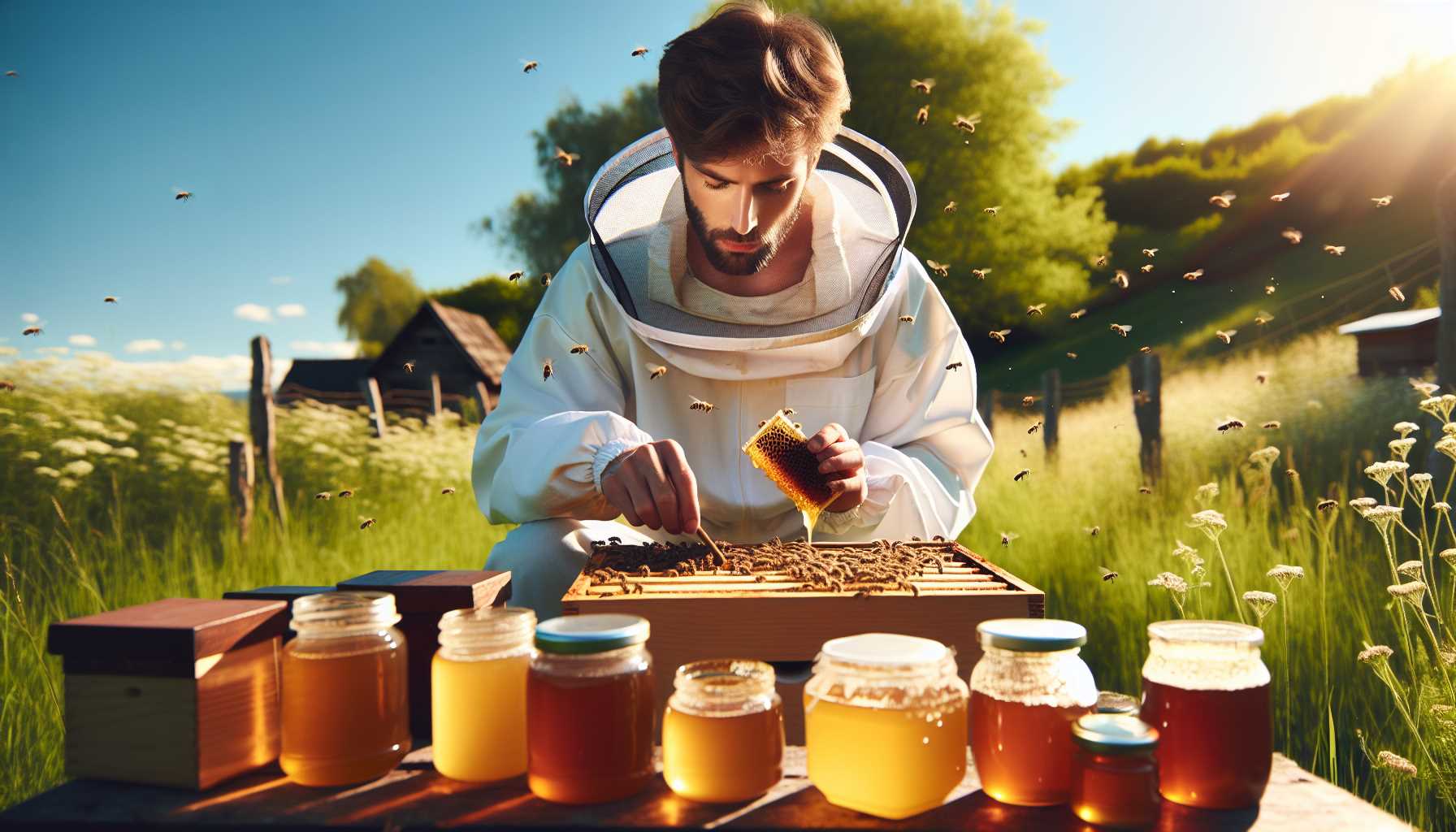
As a honey harvester, understanding the various harvesting techniques is crucial to ensure the quality of the final product. From traditional methods like hand harvesting to modern tools such as extractors, the equipment needed plays a significant role in the efficiency of the process.
Mastering these techniques and utilizing the right equipment are essential steps in becoming a successful honey harvester.
Harvesting Techniques
Utilizing efficient and gentle methods, the process of harvesting honey from beehives is a crucial aspect of beekeeping practices. Aspiring apiarists are encouraged to adopt sustainable practices to ensure the well-being of the bees and the environment. Implementing organic certification standards not only enhances the quality of the honey but also appeals to environmentally conscious consumers.
Quality control plays a significant role in maintaining the purity and flavor profile of the honey harvested. Careful monitoring of the harvesting process is essential to deliver a product that meets high standards. Additionally, paying attention to packaging design is key to preserving the honey’s freshness and visual appeal.
Equipment Needed
Efficient honey harvesting requires a specialized set of equipment known as a honey harvester, essential for extracting honey from beehives with precision and care.
Protective gear such as bee suits, gloves, and veils are crucial to ensure safety during the harvesting process. Hive tools like smokers help calm the bees, making it easier to access the honeycombs without agitating the hive.
Extractors play a key role in separating honey from the comb, allowing for a clean and efficient extraction process. These tools not only streamline the harvesting process but also contribute to maintaining the well-being of the bees and the quality of the honey produced.
Aspiring apiarists must invest in high-quality equipment to ensure successful and sustainable honey harvesting practices.
Pollination Specialist
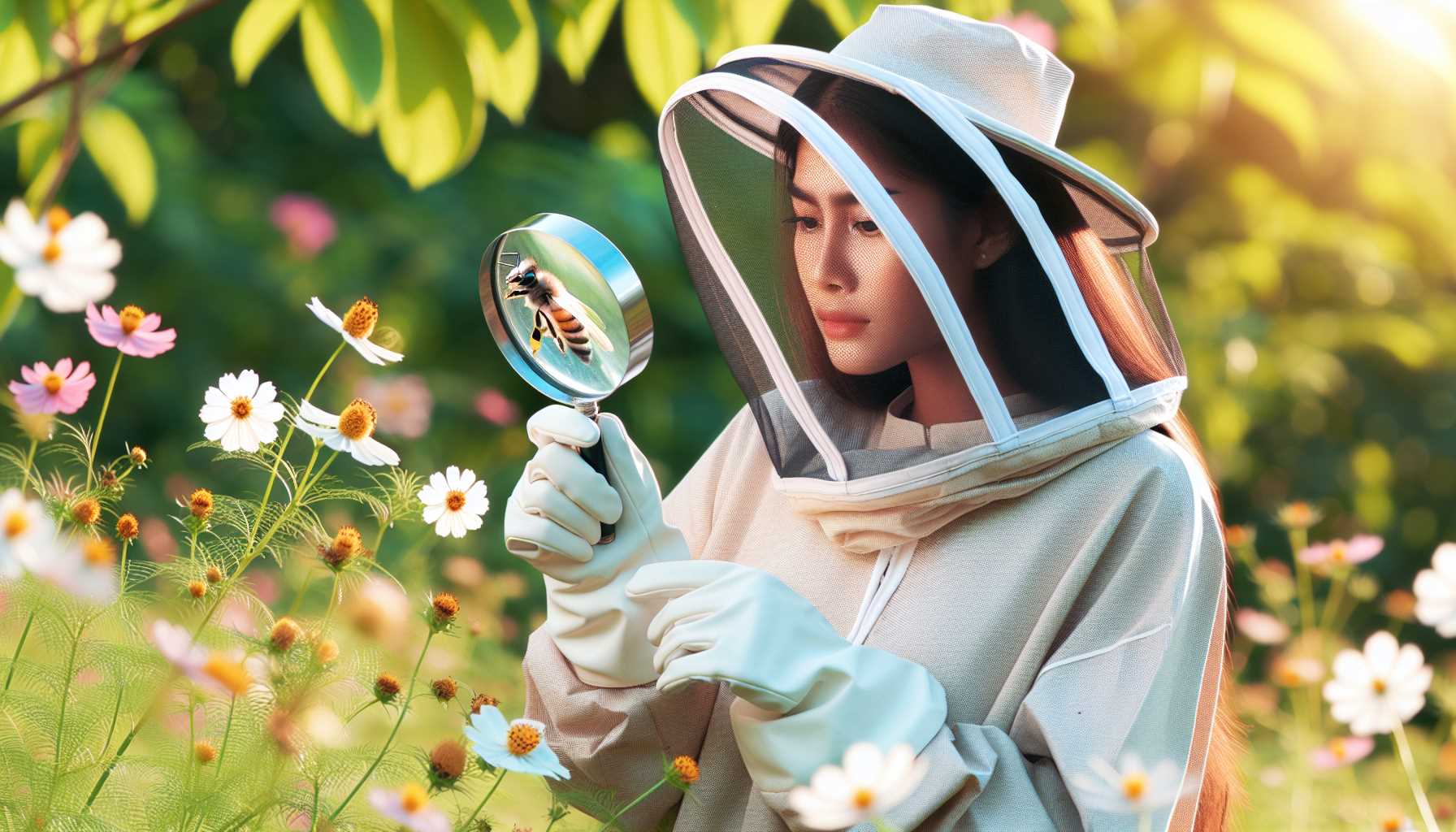
One essential role in the field of beekeeping that plays a crucial part in agricultural sustainability is that of a Pollination Specialist. These experts are instrumental in ensuring the efficient pollination of crops, enhancing yields, and preserving biodiversity.
Pollination specialists are well-versed in various pollination techniques, utilizing their knowledge to optimize the pollination process and increase crop productivity. They also play a vital role in conservation efforts, working to protect and restore pollinator populations that are essential for maintaining healthy ecosystems.
Bee Products Entrepreneur
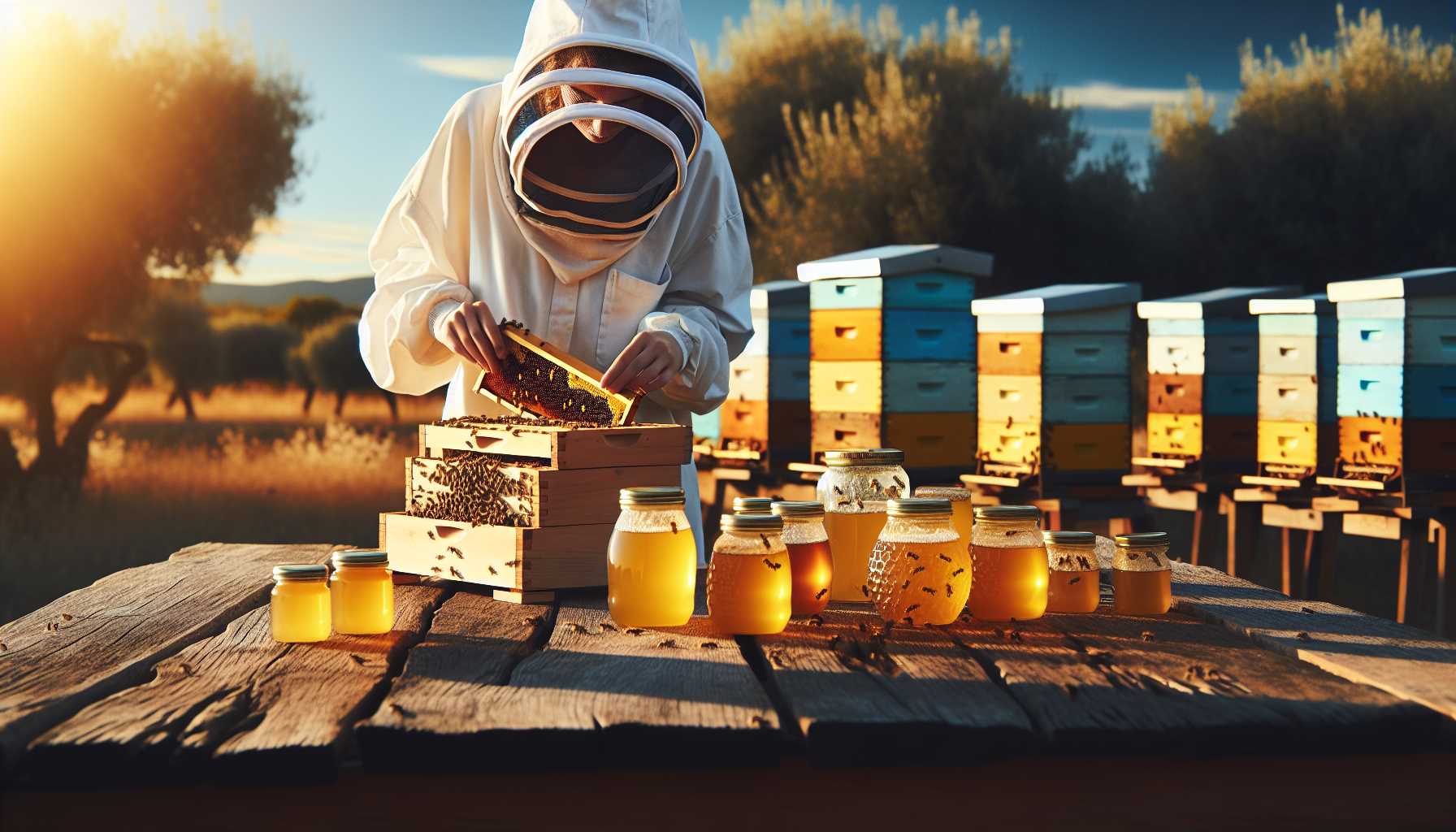
A Bee Products Entrepreneur is a dynamic individual who harnesses the incredible potential of bee-derived products to create innovative and sustainable business ventures. This role involves a deep understanding of bee product marketing strategies, including how to effectively promote honey, beeswax, propolis, royal jelly, and bee pollen to target markets. Sustainable beekeeping practices are at the core of the entrepreneur’s mission, ensuring that the products are harvested ethically and with respect for the bees and the environment.
Innovation is key for a Bee Products Entrepreneur to stay ahead in the competitive market. Keeping abreast of beekeeping industry trends and continuously seeking new ways to develop and introduce bee products is essential. Whether it’s creating unique blends of honey, exploring new applications for beeswax, or discovering novel health benefits of bee products, the entrepreneur’s creativity drives the business forward. By combining passion for bees with business acumen, a Bee Products Entrepreneur can carve out a niche in this buzzing industry.
Beekeeping Researcher
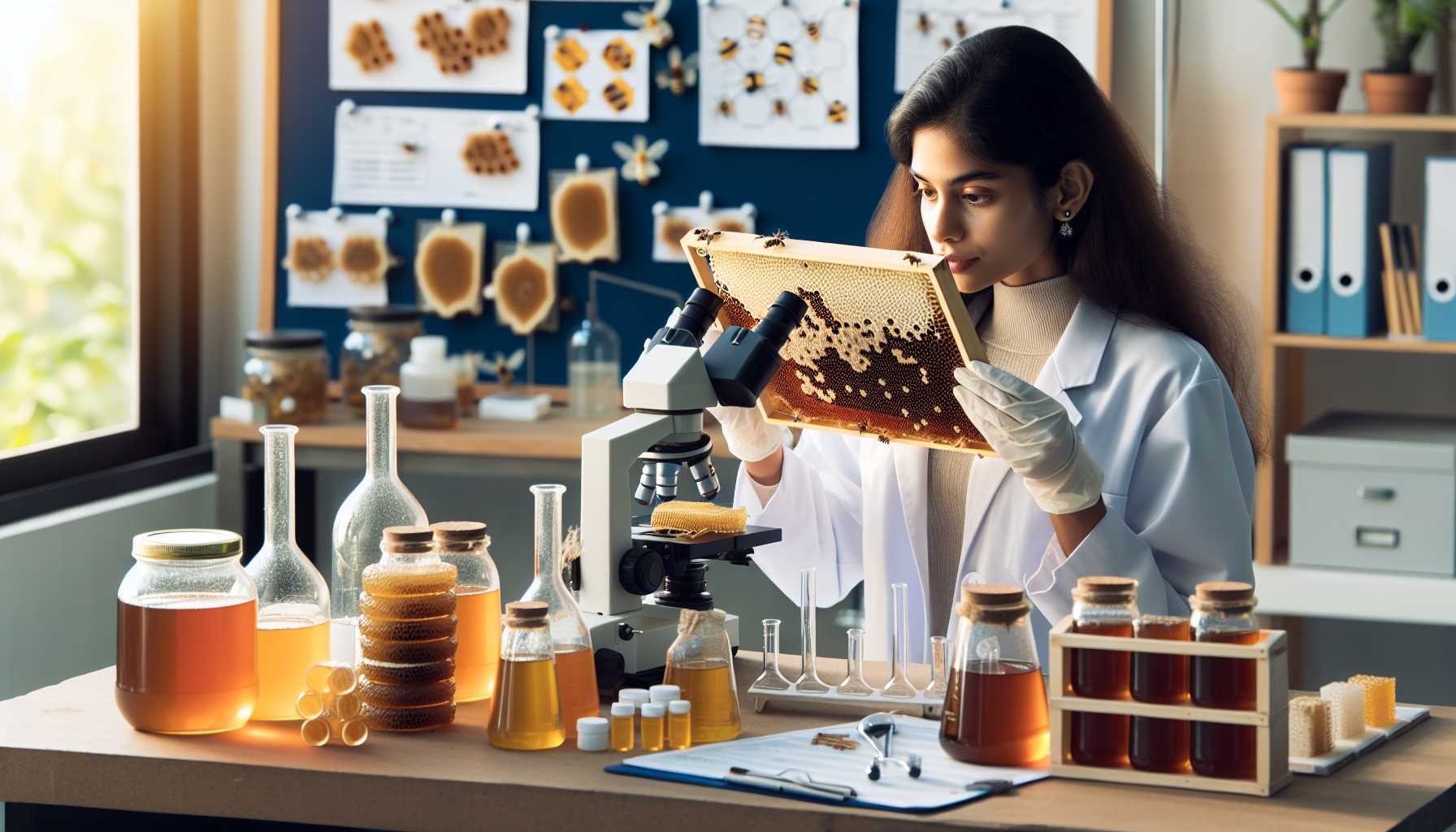
The role of a Beekeeping Researcher involves conducting intricate studies on bee behavior and developing innovative hive management techniques.
By observing the intricate dance of bees and analyzing their communication methods, researchers gain valuable insights into how to enhance hive productivity and overall bee health.
This critical research not only benefits the beekeeping industry but also contributes to the preservation of these essential pollinators.
Bee Behavior Studies
Studying the intricate behaviors of bees is a captivating and vital aspect of the role of a Beekeeping Researcher. Understanding bee communication, foraging behavior, hive organization, and social structure is crucial for effective beekeeping practices.
Bee researchers delve into the fascinating world of these pollinators, observing how they communicate through intricate dances and pheromones to relay information about food sources. By studying foraging behavior, researchers gain insights into the preferences and habits of bees, aiding in enhancing their environment.
Furthermore, investigating hive organization and social structure provides valuable knowledge on how colonies function and thrive. Bee behavior studies offer a window into the complex and harmonious society of bees, shedding light on their remarkable intelligence and cooperation.
Hive Management Techniques
Observing the intricacies of hive management techniques is a fundamental aspect of the work undertaken by Beekeeping Researchers. Hive maintenance tips play a crucial role in ensuring the well-being of bee colonies. Regular inspections, proper ventilation, and adequate space for expansion are essential for maintaining a healthy hive.
Monitoring bee colony health involves observing population size, brood patterns, and overall behavior. Implementing integrated pest management strategies and disease prevention measures are also vital components of hive management. By staying attentive to the needs of the hive and responding promptly to any issues that arise, beekeepers can promote strong and thriving bee colonies.
Prioritizing hive management techniques not only benefits the bees but also contributes to the sustainability of beekeeping practices.
Hive Inspector
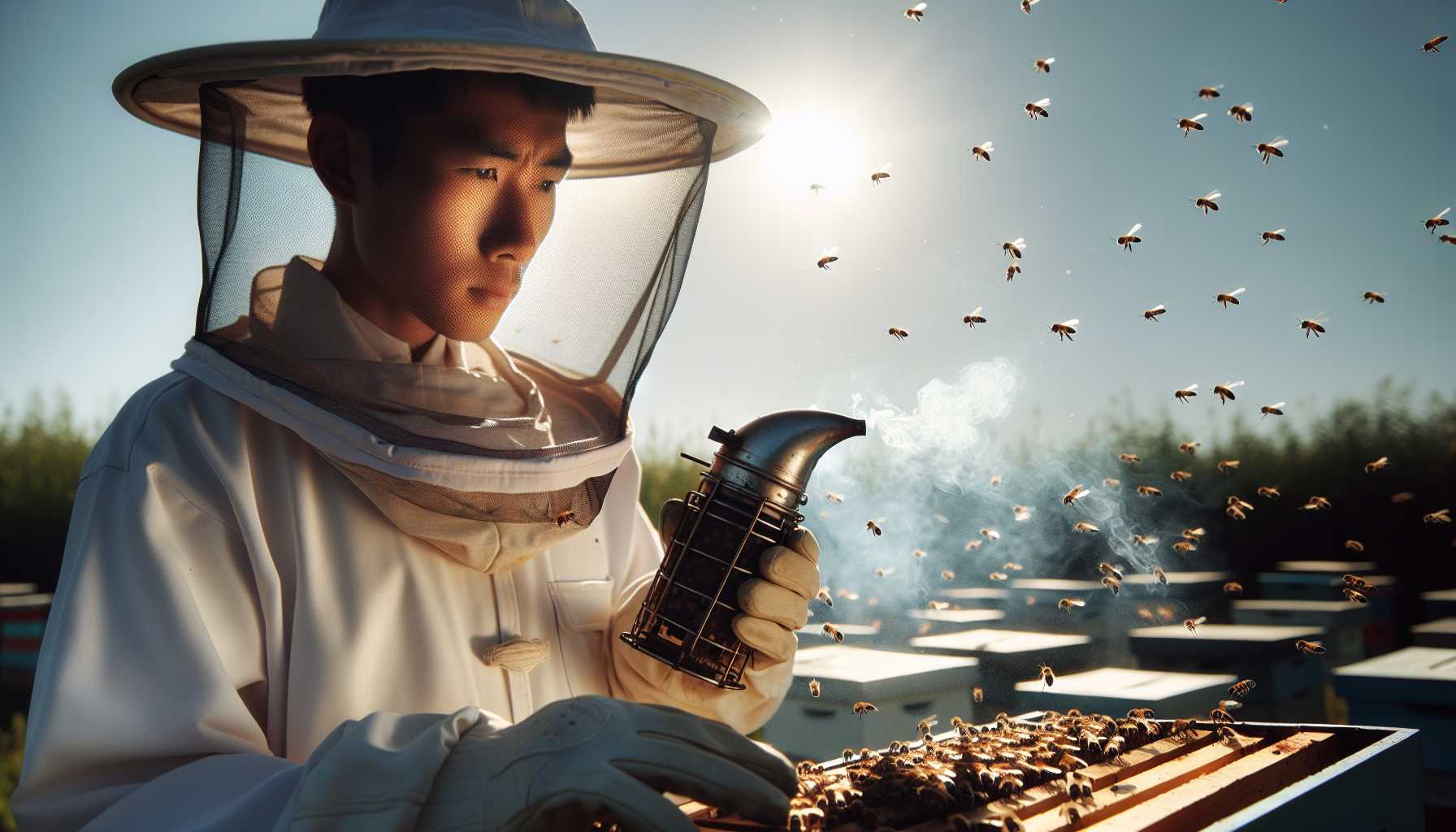
Inspecting beehives is a paramount responsibility for hive inspectors, requiring meticulous attention to detail and a deep understanding of bee behavior and hive dynamics. Hive inspectors play a crucial role in ensuring the health and productivity of bee colonies by monitoring various aspects of hive activity. As a hive inspector, you’ll find yourself immersed in the fascinating world of bees, constantly learning and adapting to the needs of these essential pollinators.
- Hive Maintenance and Pest Control: Regularly inspecting hives for signs of damage and implementing effective pest control measures is vital to maintaining healthy colonies.
- Bee Biology and Disease Prevention: Understanding the biology of bees and being vigilant about disease prevention strategies is key to safeguarding bee populations.
- Data Collection and Analysis: Recording detailed observations and analyzing hive data allows hive inspectors to make informed decisions regarding hive management strategies.
Hive inspectors are not only protectors of bees but also stewards of the environment, contributing to the preservation of these vital pollinators.
Beekeeping Educator
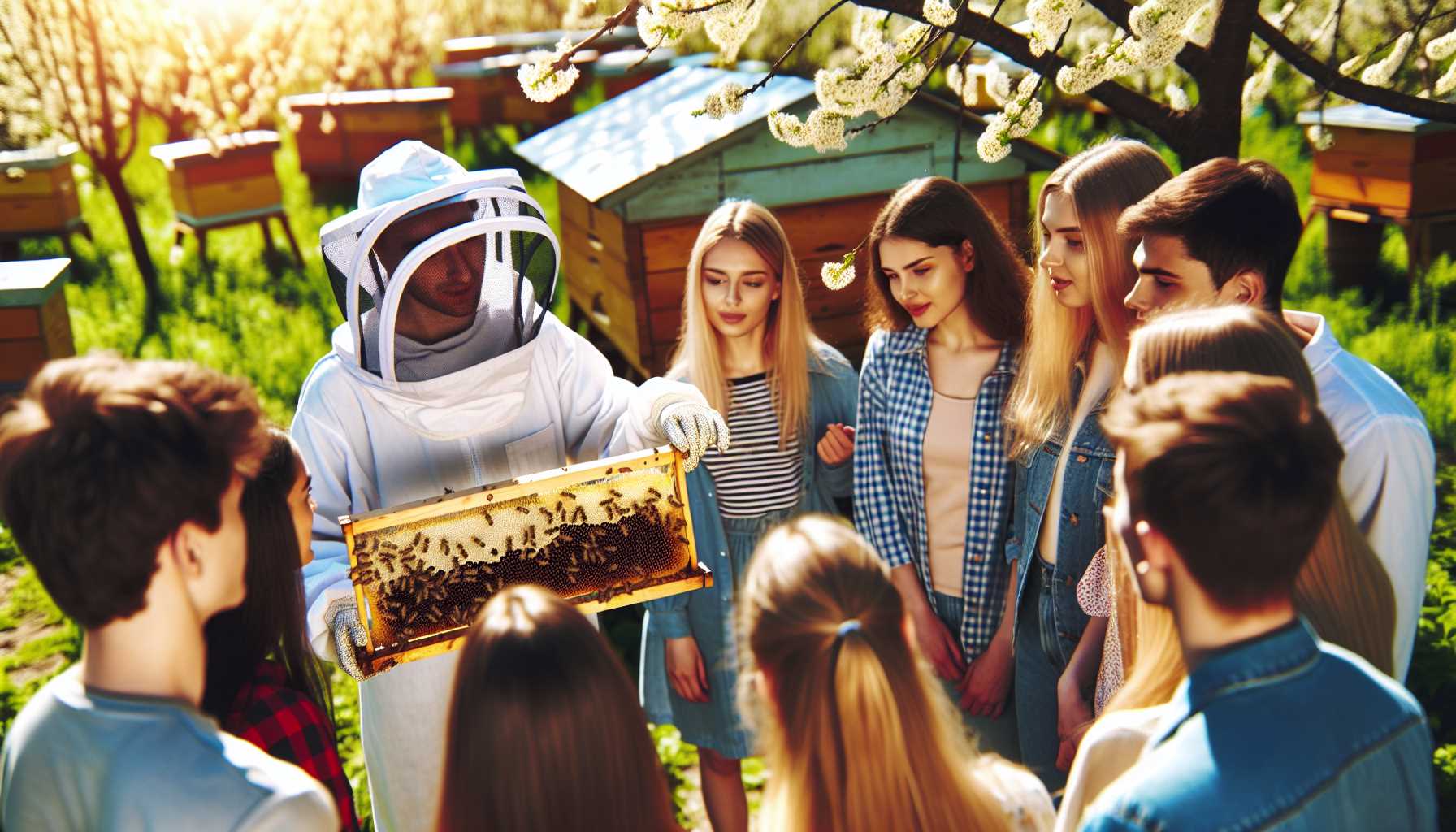
An integral role in the world of beekeeping is held by Beekeeping Educators, who play a vital part in disseminating knowledge about bee behavior, hive management, and the importance of honeybee conservation. These educators are passionate advocates for sustainable beekeeping practices and are instrumental in training the next generation of apiarists.
Beekeeping Educators organize educational workshops and provide hands-on training to beekeeping enthusiasts of all levels. Through these workshops, aspiring apiarists learn essential skills such as hive inspection techniques, honey extraction methods, and pest management strategies. Additionally, Beekeeping Educators develop online courses and certification programs to reach a broader audience interested in beekeeping but unable to attend in-person workshops.
Apiary Manager
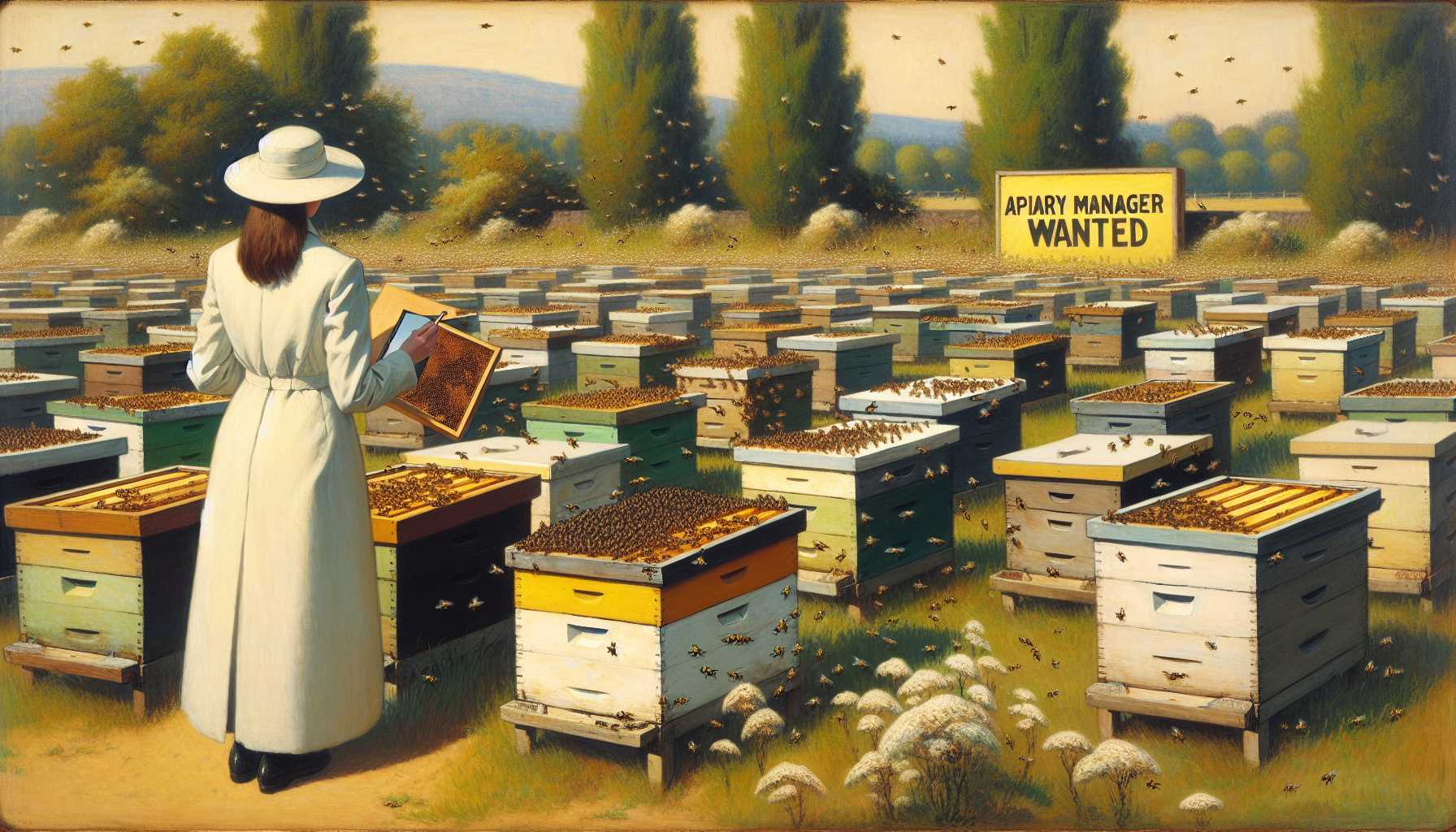
Playing a crucial role in overseeing the daily operations of a beekeeping operation, the Apiary Manager is a key figure responsible for the successful management and maintenance of beehives and the overall health of the bee colonies. This role demands a deep understanding of apiary maintenance practices and effective pest control strategies to ensure the well-being of the bees under their care.
In addition to the hands-on tasks of hive inspections and disease management, Apiary Managers also play a vital role in the business aspect of beekeeping. Here are key responsibilities of an Apiary Manager:
- Implementing Effective Pest Control Measures: Utilizing environmentally friendly methods to protect the bee colonies from harmful pests.
- Developing Innovative Beekeeping Business Strategies: Creating and implementing marketing strategies to promote honey and other bee-related products.
- Ensuring Sustainable Apiary Maintenance: Establishing sustainable practices to maintain the health and productivity of the beehives over time.
An Apiary Manager’s dedication to the well-being of the bees and the success of the beekeeping business is essential for a thriving apiary.
Honey Sommelier
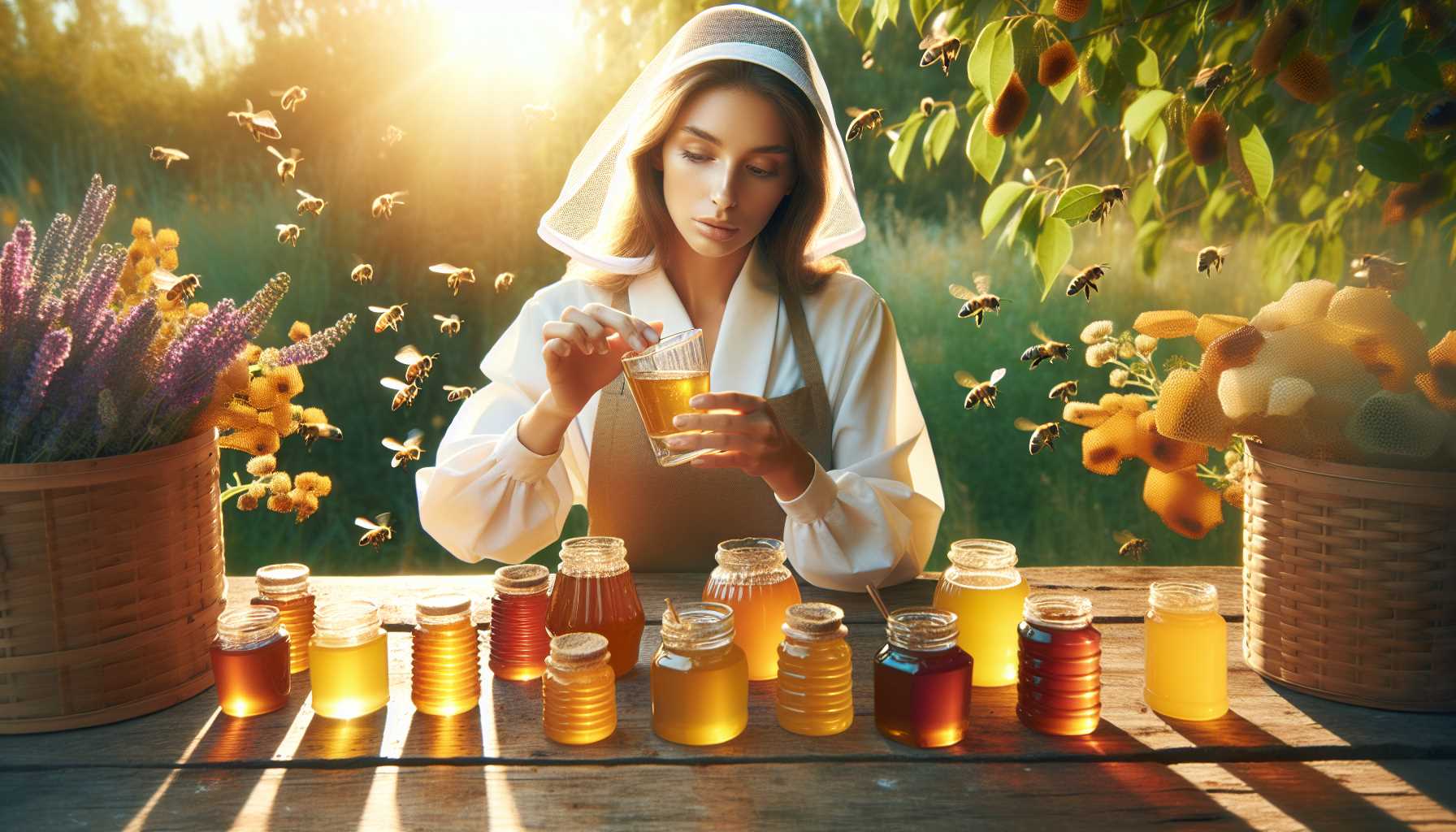
With an acute palate for nuanced flavors and a deep appreciation for the art of honey tasting, a Honey Sommelier is a distinguished expert in the world of apiaries and beekeeping. These professionals delve into the intricate world of honey flavors, much like a wine sommelier explores different grape varieties and regions. Honey tasting is a sensory experience that allows them to discern the diverse flavor profiles of various types of honey, influenced by factors such as floral sources, terroir, and processing methods.
A Honey Sommelier possesses a refined ability to detect subtle notes within honey, identifying undertones of floral, fruity, woody, or earthy characteristics. Their expertise extends to understanding the complexities of honey production, storage, and presentation. By mastering the art of honey tasting, they can guide consumers on selecting the perfect honey for culinary pairings, health benefits, or simply to savor its pure, natural sweetness.
In a world where uniqueness and quality are valued, the role of a Honey Sommelier is indispensable for those who seek a deeper connection to this golden elixir.
Beekeeping Equipment Technician
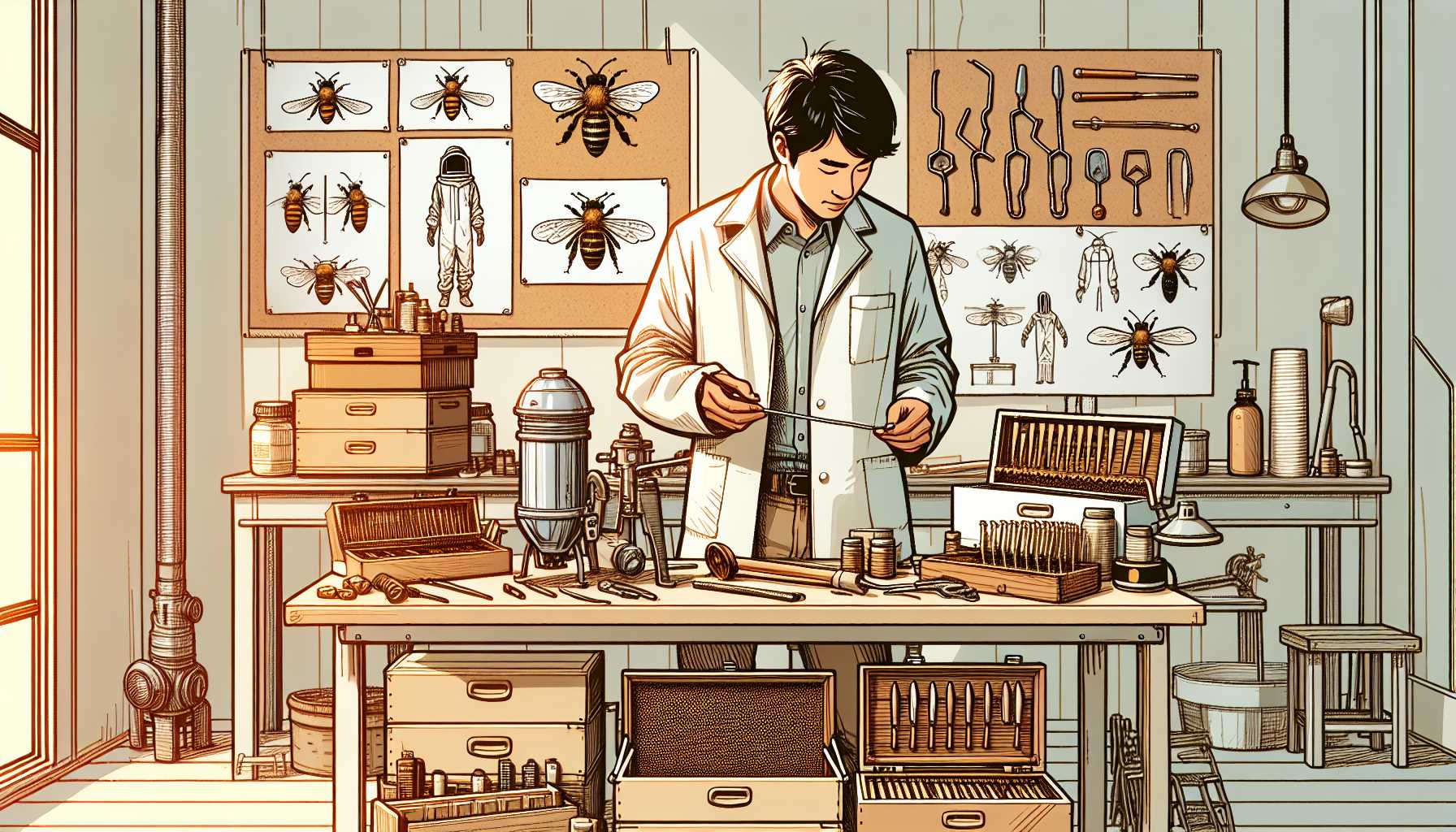
Ensuring the optimal functionality and maintenance of beekeeping equipment requires the expertise and precision of a skilled Beekeeping Equipment Technician. These professionals play a crucial role in the beekeeping industry by keeping the tools of the trade in top condition, ultimately contributing to the health and productivity of the bee colonies. A Beekeeping Equipment Technician must possess a deep understanding of the intricacies of beekeeping technology to effectively perform their duties.
Responsibilities of a Beekeeping Equipment Technician:
- Conducting regular inspections and maintenance of beekeeping equipment.
- Repairing and troubleshooting issues with beekeeping tools and machinery.
- Keeping up-to-date with the latest advancements in beekeeping technology to enhance equipment efficiency.
Beekeeping Equipment Technicians are vital for ensuring the smooth operation of apiaries, allowing beekeepers to focus on the well-being of their bees and the production of quality honey. Their dedication to equipment maintenance is essential for sustaining a thriving beekeeping industry that provides valuable products and supports biodiversity.
Frequently Asked Questions
How Much Does It Cost to Start a Beekeeping Business?
Starting a beekeeping business requires initial investments in equipment costs, which can range from a few hundred to a couple of thousand dollars, depending on scale. Factor in beekeeping courses for knowledge, legal regulations, and financial planning to ensure success.
What Are Some Common Challenges Faced by Beekeepers in Different Regions?
Beekeepers encounter diverse challenges due to climate variations impacting bee health and honey production. Implementing effective pest management strategies is crucial to combat threats like Varroa mites. Adaptability, continuous learning, and collaboration with local experts are essential for sustainable beekeeping practices.
How Can Beekeepers Help to Prevent Bee Population Decline?
Beekeepers play a vital role in preventing bee population decline by promoting bee-friendly landscaping practices and supporting sustainable agriculture. These efforts provide bees with diverse foraging opportunities and reduce exposure to harmful pesticides, aiding in their conservation.
What Are Some Unique and Innovative Bee Products That Can Be Produced?
In the realm of bee products, there is a world of innovation waiting to be explored. From the rejuvenating wonders of bee venom skincare to the exquisite art of honey wine production, each offering promises a journey of sensory delight and discovery.
How Do Beekeepers Ensure the Safety and Health of Their Bees During the Winter Months?
During winter, beekeepers ensure hive safety by insulating hives, providing adequate ventilation, and monitoring moisture levels. Proper bee nutrition is critical, with supplementary feeding if needed. Regular checks, hive wrapping, and strategic placement aid in maintaining bee health.

Hello! My name is Noel Calvin. I graduated from UCLA and now work as a writer at Launch Ninjas. I write blog posts that inspire and guide our readers in their entrepreneurial pursuits. I live in Pleasantville, NJ, with a peaceful yet lively atmosphere that inspires me.
Writing stories is more than just a job for me. It allows me to share my observations and satisfy my curiosity about the world. I combine my analytical skills with creative enthusiasm to delve into technology trends and startup stories. But my life isn’t limited to screens and keyboards. I value loyalty, passion, and a touch of old-fashioned charm, which I infuse into every narrative I create.
I love spending time in my garage, jamming with my band when I’m not writing. Playing the guitar and singing bring me immense joy. I also enjoy capturing ordinary and extraordinary moments through my camera lens and exploring new culinary adventures that excite my taste buds. I’m always seeking new experiences.
My family is very important to me. Joyful Sunday brunches filled with laughter and intense board game nights keep me grounded, reminding me of life’s simple pleasures.
In my world, every moment is an opportunity for discovery. Every discovery is a story worth sharing, whether a heartfelt moment at home or the pulse of technological innovations. Join me as I navigate through life, one blog post, one guitar strum, and one heartwarming family dinner at a time.
